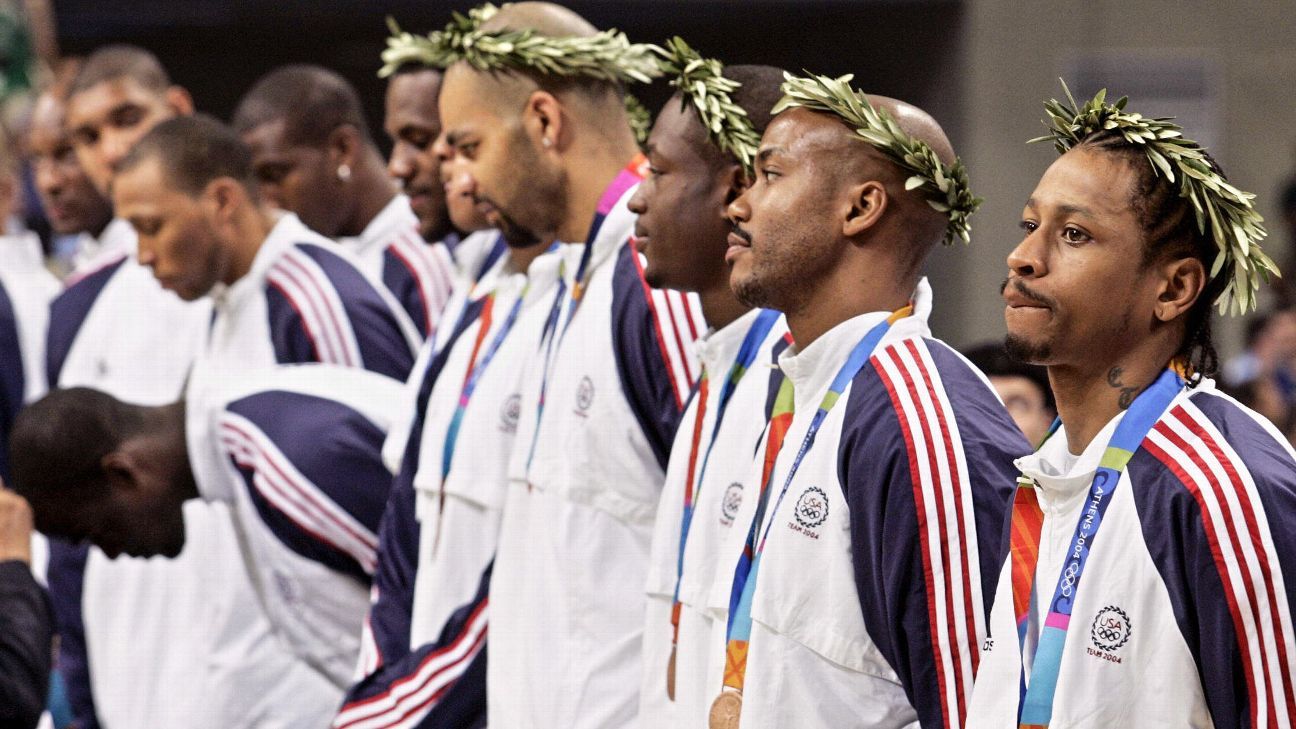Editor’s note: This story was originally published in August 2019.
After the Dream Team’s Olympic gold medal in 1992, USA Basketball continued to coast along in international play, remaining undefeated whenever NBA players represented the country, winning gold at the 1996 and 2000 Olympics. Then, at the 2002 FIBA World Championships in Indianapolis, an American team led by Paul Pierce and Michael Finley and coached by George Karl suffered losses to Spain, Argentina and Yugoslavia en route to a sixth-place finish.
Two years later, the NBA and USA Basketball hoped to keep America’s post-1992 Olympic record perfect at the 2004 Athens Games, but several prominent players declined invitations, in part due to security concerns over attending the first Olympic Games after the attacks of Sept. 11, 2001.
The roster that head coach Larry Brown and lead assistant Gregg Popovich took to Greece proved to be flawed and hastily assembled, led by Allen Iverson, Stephon Marbury and captain Tim Duncan, along with late additions LeBron James, Carmelo Anthony and Dwyane Wade, all coming off their rookie NBA seasons.
Although Team USA was able to salvage bronze with a victory over Lithuania in the third-place game, the 2004 Olympics was widely deemed a disaster.
The debacle became a turning point for USA Basketball.
Note: This previously unpublished oral history comes from reporting by Jackie MacMullan, Rafe Bartholomew and Dan Klores for their acclaimed book “BASKETBALL: A Love Story,” available now in hardcover and in paperback Oct. 15 via Penguin Random House and wherever books are sold.
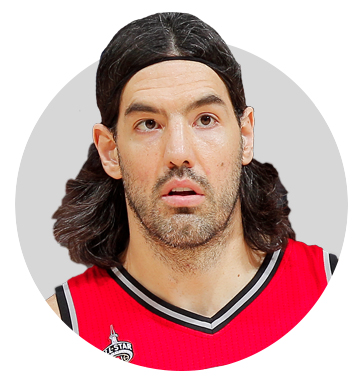
Luis Scola, Argentina forward: The first time I played against [Team USA] was in ’99 in Puerto Rico. We were trying to qualify to the Olympics in 2000. We were very young — I was 19, Manu [Ginobili] was 21, [Andres] Nocioni was 19 — nobody was above 25. I was guarding Vin Baker, and I remember thinking this is just impossible. There’s nobody in the world who could compete with these guys. They’re taller than me, he weighs like 20 more pounds than I do but he runs faster and he shoots from farther and he can play in the post and he can guard. How can I compete? There’s no one area I can take advantage of him. I felt miles away, like it was another sport for us. We didn’t qualify to Sydney, but we start playing really well and things start to change after that tournament. The second time we play them, we still lost by 30 but we play a lot better. And the year after we start growing, and by 2002 things are completely different for us.
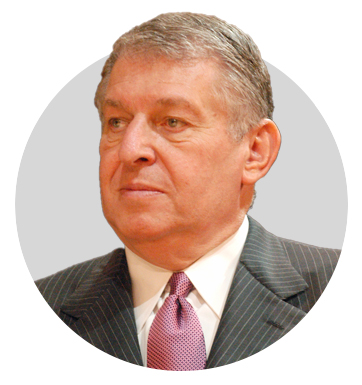
Jerry Colangelo, USAB Director since 2005: From ’92 on, there was a committee put together of NBA people — coaches, general managers. And in ’04, we had players selected by a committee. But some players didn’t want to go for whatever reasons. Contracts, some wanted to take the time off, some had no interest. What didn’t exist was this desire to represent your country. But the committee format left something to be desired.
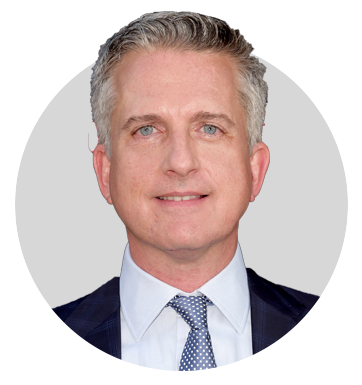
Bill Simmons, sportswriter and author: We sent this team to the ’04 Olympics that was basically an All-Star team, and there was no thought into how the guys would mesh with one another. I looked at our team and I was like, “Stephon Marbury is gonna be playing, who’s the other guy? The backcourt is Marbury and [Allen] Iverson? We’re screwed! Those guys are gonna be in fistfights for the ball.”
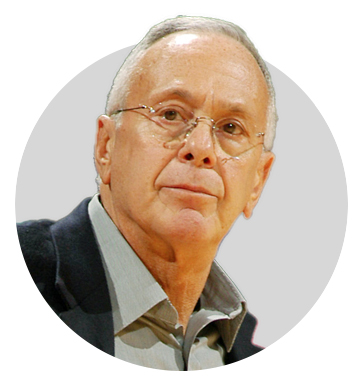
Larry Brown, Team USA head coach (2004): You know that’s a sore point in my mind. That whole thing makes the hair on the back of my head stand up because we had Ray Allen, we had Jason Kidd, we had Kevin Garnett, Tracy McGrady, Vince Carter — that was an amazing team that was put together that qualified. We had Argentina down 37 points at halftime in 2003. That team had to qualify and they were playing unbelievable basketball, and then hardly any of those guys come. That team never went to the Olympics because of 9/11.

Colangelo: I’m not saying they were second-tier players, but it wasn’t the team that Larry Brown was hopeful of fielding in the ’04 Games.

Marv Albert, TV sportscaster: [Brown] probably felt he could win with them, particularly since he knew Iverson. I don’t think you can win in the Olympics unless you have a team where you know guys are gonna play together. I just don’t think you can win.

Brown: We didn’t get any practice time. They kind of picked the team at random and it’s totally unfair. A lot of people were critical of the coaches — I can accept that — but they’re critical of the players. Well, the players had the balls to go during that time to Greece. These kids, a lot of them weren’t really sure what was going to happen. We were in Turkey and the hotel got bombed, and then we go to Greece and they hate — they’re not really excited about the Americans. These kids did some unbelievable things under difficult circumstances, with no time to prepare, no time to practice.

Scola: Obviously they are extremely talented, but they don’t adjust well to the rules. They are frustrated about it. They didn’t decide to just play through it, they were complaining a lot. This was a team that could be beat.

In Team USA’s first game of the Athens Olympics, Puerto Rico ran the Americans off the court. The 92-73 blowout remains the worst loss the United States has suffered in international play, and it set the tone for a doomed Olympic campaign.

Rod Thorn, former Olympic Committee chairman: When we lost the first game to Puerto Rico in the bracket, it was like, “Wait a minute, we can beat these guys.” And, you know, was the team constructed exactly like you’d like it to be? In retrospect, obviously it wasn’t.
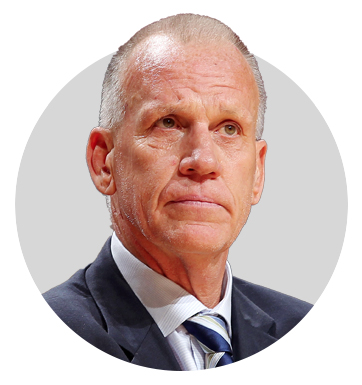
Doug Collins, former coach and TV analyst: In 2004, I broadcast the games in Athens, and it was a disaster. The level of frustration — there were rumblings that they wanted to send guys home before they even got to the Olympics. And basically, I think the commissioner said, “No, this is our team,” but there were things along the way that you knew were gonna come to a head once we got to the Olympics and I was there to watch it. Mike Breen and I did the games and when we’d take our headsets off after the game, we were like, “What did we just watch? What was that?”

Scola: By the time we get to play the U.S., we felt prepared. This was our chance. They had talent, but in a one-game scenario we knew it was possible. … We knew that we needed to let them shoot. We needed to pack the paint, not let them go inside, because with their athleticism and their strength it was going to be almost impossible to beat them. We needed to make them shoot, and they shot pretty bad that game.

Collins: [Team USA] won the bronze medal and I said, “Something’s gotta be done.” We had gotten so arrogant that we had thought it didn’t matter — we can send anybody and win. And after ’04 we found out we couldn’t do that.
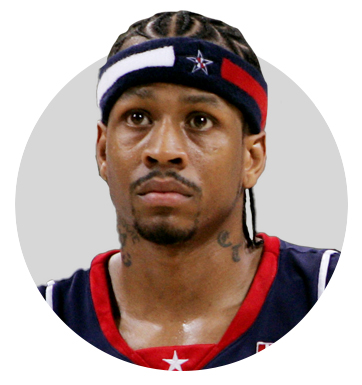
Allen Iverson, 2004 Team USA guard: Yeah, [losing] hurt. I mean, ’cause I was a part of it. It always haunts me because my dream was to win a gold medal, but the way I look at life is, the things that I’ve accomplished, people where I’m from don’t even get to the doorstep of doing anything like that. So I thank God that I had the opportunity to do it, but yeah, it still bothered me.
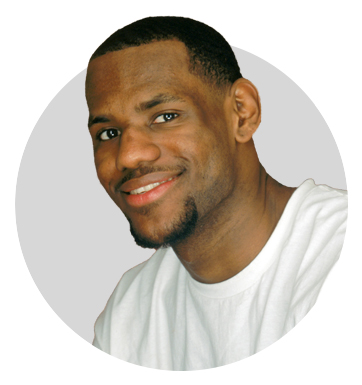
LeBron James, 2004 Team USA forward: We didn’t have the discipline, we didn’t have the structure to be able to play on a world stage. We had great basketball players but we didn’t have the structure, and I think that’s part of why we finished third.

Iverson: LeBron James might’ve played five minutes a game, Carmelo might’ve played five minutes a game. It’s just a whole bunch of things. I mean, it just wasn’t meant to be. It’s simple as that. The talent was there — it just didn’t happen.

Collins: They chose LeBron James on that team, who was a young player. Carmelo Anthony, some young guys. Those guys have always played, and now you’re asking them to come and sit there?

Simmons: People close to LeBron always say that was good, the way Larry Brown treated the young guys on that team. He treated them like young guys. They had never been treated like they weren’t the s—, and that was the first time they had some coach like, “Yeah, you’re not gonna play; I’ve got these other guys.”

Brown: I thought, man, under the circumstances, they did pretty darn good. Spain was great that year, and we had to beat them [to reach the semifinals], Tim Duncan fouled out of every game, hardly got to play.

Collins: [Duncan] got so frustrated he said, “I’ll never play in the Olympics again.”
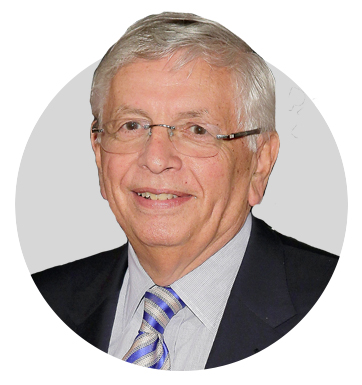
David Stern, NBA commissioner (1984-2014): 2004 affected our thinking about this whole Olympic experience because it became clear that even though we were trying to be good partners and leave it to USA Basketball, that [the NBA] was going to ultimately get blamed for anything that happened. So we made the determination that we had to take a more active role in the entire Olympic experience.

Scola: That’s what they needed. That tournament was what they needed to say, “Enough is enough, we are going to put effort in this.”

Colangelo’s first move as the head of USA Basketball was to call a gathering of basketball minds to discuss what reforms were necessary and to name a coach who would lead the team in future Olympic and world championship competitions.

Colangelo: When David Stern called me back in ’05, I was home recovering from prostate cancer after having sold the Suns. It was a traumatic year for me, ’04. So David called, saying, “Would you take over USA Basketball?” And I said, “Sure, two conditions: full autonomy — I pick the coaches and the players. No more committees or politics.” And he said, “Absolutely, you got it, what’s No. 2?” and I said, “I don’t want to hear about a budget.” And he went off ranting and raving and I let him go and I said, “Are you finished?” and he acquiesced.

Stern: He took it very seriously, and you know, he announces to the world in every interview: He said he had complete freedom and his budget was complete, and that he could spare no expenditure. If you put me up against the wall under oath I would nitpick that somewhat, but he was perfect because he was respected and devoted and he went about putting together the team the way it should be.
“It always haunts me because my dream was to win a gold medal, but the way I look at life is, the things that I’ve accomplished, people where I’m from don’t even get to the doorstep of doing anything like that. So I thank God that I had the opportunity to do it, but yeah, it still bothered me.”
Allen Iverson, on winning bronze in the 2004 Olympics

Colangelo: If you were a basketball fly on the wall, you couldn’t have picked a better place to be. I called a meeting in Chicago of former Olympic coaches and athletes, and I held it at the Italian American Sports Hall of Fame on Taylor Street and, with the exception of Pete Newell, from the ’60 team, who was recovering from cancer surgery, and Bobby Knight, who was on some fishing trip or something, which disappointed me, every other [Olympic] coach was there going back to 1960. Larry Brown wasn’t, ’cause he was coaching in the playoffs I think, but you name ’em, they were all there — Lenny [Wilkens], Chuck Daly, Rudy [Tomjanovich], and on. Then I had athletes like Jerry West and Michael Jordan. We had 30-some people there. I wanted to pick their brains out of respect for them, bringing the basketball people together to have this discussion. I had each one of them talk. What was your experience as an Olympian? How do you see things? What do you think needs to happen? Everyone had a chance to speak. It was great stuff, and once all that was over with I said, “Well, now let’s talk about coaches.”

Stern: Only someone with Jerry’s gravitas could have selected a coach not from the NBA ranks, but from the college ranks.

Colangelo: I put some college coaches up on the board and I put some pro coaches up on the board, and I let people speak. And I remember, this was a great moment: Dean Smith said, “There’s only one college coach up there that could get the job done, and that’s Coach K.” His biggest rival was [Mike Krzyzewski]. But, out of respect, Dean Smith made his point. Now, going into that meeting, I had two names in my mind. It was Popovich on the pro side and it was Coach K on the college side. [Krzyzewski] was an Army, West Point guy, and Popovich had a lot of the same stuff. So when you talk about a couple of candidates, you couldn’t go wrong.

Thorn: [Colangelo] went against the grain of a lot of people in the NBA thinking, “Why should you get a college coach to do it?” But obviously it’s worked out very well.
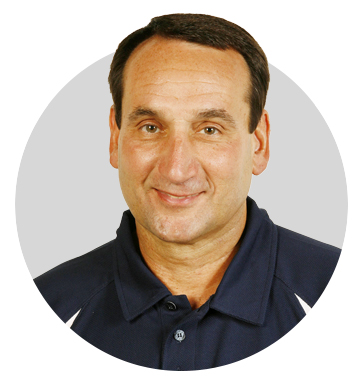
Mike Krzyzewski, Team USA head coach since 2008: You know, I think a really good head coach understands that it’s not just his voice that the team needs to hear. In fact, a team might get tired of just hearing one voice, and so you want people around you who are smart, loyal, prepared, and then you have to give them an opportunity to express themselves. And a number of times they’ll say it better than you, or say it with more passion, or it might be received better than what you said because you’ve said too much. You know, there’s an on-off switch that players have — like how much are you willing to listen to today from me? And then maybe another message might be able to come across because it’s done by Jim Boeheim, Tom Thibodeau or Monty Williams. Or you ask a player and they might say it, and they might say it in a language that’s better than yours.

One of the most significant challenges Colangelo and Krzyzewski faced was convincing American players that international competition meant as much as winning an NBA championship. In the decade after the Dream Team won gold in Barcelona, fans and players began taking it for granted that any team full of American NBA players could dominate European and South American rivals. When that was proved wrong in 2002 and 2004, Colangelo looked to reestablish the patriotism and sense of mission around USA Basketball — to make representing one’s country feel like an honor and a duty, and to make it cool again.
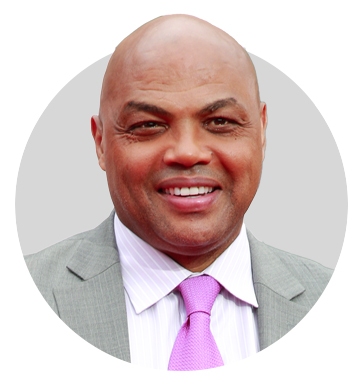
Charles Barkley, 1992 and 1996 Olympic gold medalist: There’s nothing like the patriotism that goes on during the Olympics, because the first thing you realize — we’re the least patriotic country in the world. What I mean by that is, when you go there, everybody has a flag on their back. It was a great honor to put the “USA” on your chest, but the really cool thing about the Olympics was to see how the other countries love their players.
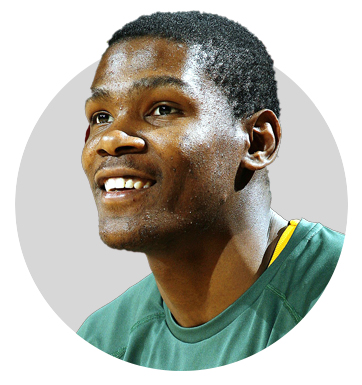
Kevin Durant, 2012 and 2016 Olympic gold medalist: [In] 2010, that was my first taste of [international] competition and what opened my eyes were the other countries. We played against Lithuania and the whole arena had flags out, singing their national anthem, and they had so much pride. You could tell that’s what brought the whole country together. And here in the States it’s kind of a shame that that doesn’t unite us as well. I know our country is one of the most powerful in the world, but it feels like our states are divided. Stuff like that should bring us closer. It brought France closer, it brought Spain closer, it brought Lithuania closer. Turkey, they were celebrating ’cause they won the silver medal. If we’d have won silver as Americans? We would have got — we would have been labeled as the worst team ever.

Simmons: The ’04 Olympic team was kinda the culmination of people making decisions about what’s good for their brand and not ’cause they love basketball. It was like they weren’t playing for their country, they weren’t part of a bigger plan, they were there because the shoe company was happy that they were there or because they wanted to be there from an ego. Nobody was there to win the gold medal.

Thorn: When you really look at it, players give up a lot [to compete internationally]. The season is forever and they give up their summer to play on the USA team. Conversely, they can make huge names for themselves, but you’re asking players to do a lot, and if you go back historically I can remember when Bill Walton didn’t play in the Olympics, Kareem [Abdul-Jabbar] wouldn’t play in the Olympics.

James: I think foreign players feel differently about the NBA as far as winning a championship compared to winning a gold medal and playing for their country. I think as kids in America and as an African-American kid, your whole mindset growing up is “I wanna be in the NBA.” You don’t really understand the importance playing for your country. It’s not preached about, it’s not talked about, it’s not shown.

Tom Thibodeau, Team USA assistant (2016): Jerry Colangelo, Mike Krzyzewski, Jim Boeheim — they brought the patriotism back to it. I think all our players feel very strongly about representing our country. The pride is there now. I had the opportunity in my first year as head coach in Chicago of watching Derrick [Rose] participate, and I saw when he came back, the pride he had in winning the gold.
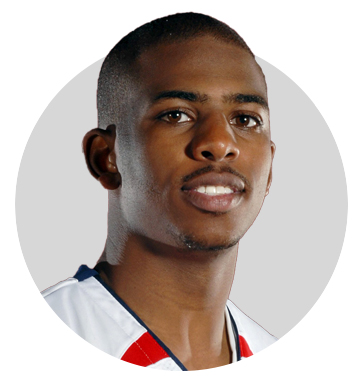
Chris Paul, 2008 and 2012 Olympic gold medalist: When I play for the Los Angeles Clippers, do Boston fans cheer for the Clippers? No. When you play on the USA team, everybody comes together. There’s no other team like that. When you go to opening ceremonies, you get goose bumps, like this is the biggest team that you’re on in life.

The first test of Team USA under Colangelo and Krzyzewski came in the 2006 FIBA World Championships, held in Japan, where an American team featuring James, Anthony, Paul, Wade and Dwight Howard remained undefeated until the semifinal round, where it suffered an upset loss to Greece, which played a near-perfect game, shooting 62.5% from the field. The loss showed that even with buy-in from many of the best American NBA players, international teams could still compete on even terms, and sometimes beat them.

Paul: I was on the team in ’06. We lost to Greece, and I lie to you not, we didn’t wanna come home. I’m telling you, we did not wanna come home. That’s one of the toughest losses that I’ve ever felt.
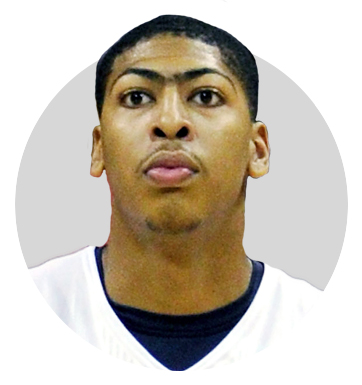
Anthony Davis, 2012 Olympic gold medalist: Coach K, he’s so passionate about Team USA and being able to represent his country. He didn’t want us to forget why we’re there, so that side comes out to remind us, “All right, guys, even though we feel like we can beat anybody, we still gotta come out and play, because anybody can get hot.” He always brings up ’06 in Greece when they lost, that guys was playin’ and they came out and then fell behind. So he tries to make sure we on that right page and that right mindset going into games.

Krzyzewski: A lot of times you have to beat human nature. Your opponent is not the other team, it’s human nature: Has your team played three games in a week? Are guys coming with injuries? Have you won, so now are you just expecting to win? Is your best player going through a high or a low? Those are the opponents you have to beat — the human-nature opponents — before you ever get on a court and beat another opponent.

By the time the 2008 Beijing Olympics rolled around, Team USA had two more years of preparation under its belt, and was ready to reassert America’s supremacy over world basketball. The “Redeem Team” cruised to the gold-medal game, where clutch play from Kobe Bryant helped the United States defeat Spain and win its first major international championship since the 2000 Sydney Olympics. USA Basketball hasn’t lost since, racking up golds in the 2010 and 2014 FIBA World Championships as well as the 2012 and 2016 Olympic Games.

Simmons: The ’08 Olympics — one of my favorite games that nobody ever talks about. When USA beat Spain [for the gold medal], it got super tense in the last 10 minutes. Guys got tight. I call it the frozen face. And Kobe, to his credit, he’s like: “I got this. I’m gonna take it.” He went out and made a couple big shots and they won, but you need that guy.
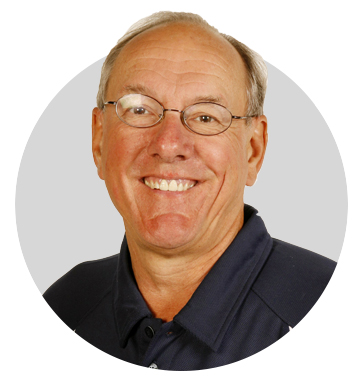
Jim Boeheim, Team USA assistant since 2008: Spain, they think they can beat us. They really do. They’ve got the Gasols, they’ve got great guards that play overseas and in the league. They’re a quality team and they’ve been playing together since they were young kids. We’ll play them time and time again, and they’re certainly right now the team that is the toughest to beat in the world.

Colangelo: When we won the gold medal, there was a moment when the medals were being distributed, “The Star-Spangled Banner” was being played, the flag being raised. It was a moment of total fulfillment, because few people in life have the opportunity to have a plan, watch it executed perfectly, get the desired result, and it was that moment. It doesn’t get any better than that.

Durant: I was disappointed not making the [2008] Olympic team. I felt I played my way onto the team. Nobody really expected me to play that well in the practices, but I was 19 and I felt like I got snubbed. I felt disrespected, and I was like, “Nah, this can’t go down like that. It’s not happening again.” I was just so upset that I wasn’t part of the Redeem Team. You could tell those guys had so much fun playing with each other and I wanted that even if I was on the bench. I just wanted to learn, soak that energy up from those guys.

Krzyzewski: When we won in 2012 in London, it was a great win because it came after a strike-shortened season where a number of the guys that were on that team from Oklahoma City and Miami actually played in the [NBA] championship. And a week after they played that series, they were getting ready for the Olympics. So we were dealing with a team that was mentally and physically fried. We had to keep them energized, focused, and they did a great job, but we had to make a lot of adjustments to make sure that would happen.

Paul: Coolest thing we did, I think it was the 2012 Olympics. One of the very first practices, Coach K rolled out a TV in front of us and he played the Marvin Gaye national anthem [from the 1983 NBA All-Star Game], which to me is the best national anthem ever sang. He played it for us before our first practice, and just to see our team and how everybody just was like, “Let’s go, let’s go!” It’s something I’ll never forget, and once we started playing games, before the next game there would be a little highlight tape from the previous game, and in the locker room they would play it over the national anthem before every one of our games.

Davis: 2012 for Team USA was unbelievable. I got drafted and went to New Orleans first, and I still thought I wasn’t ready to even go into the league. I was the No. 1 pick so there was a lot of pressure on me, so I go to the coach [Monty Williams]’s office, I’m like: “Coach, I’m not feeling this. I’d rather be here and work with the guys [in New Orleans].” Coach Mont said, “Nope, you’re going to Team USA. It’s a great experience and you will be a better player being around all them guys and coaches.” So I gotta do it.

James: It started with Jerry Colangelo, down to Coach K and our coaching staff, and then me as one of the team leaders, and it just trickled down to everybody else.

Davis: I was looking up to LeBron when I was in college, and six months later he’s my teammate. At that time, I was definitely starstruck. And all those guys, now you get a chance to play with them, see how they are on the floor, see what they see. They tell you, “AD, go set the screen, I’ll throw the lob,” and they’re doing it! LeBron, he’s throwing lobs — it’s actually happening! That was like the best feeling ever.

Durant: In London, it was such a team environment it was scary. You got the biggest stars in the game in one room — global brands — and you got so much sacrifice. James Harden, he had just come off of Sixth Man of the Year and you seen that he was ready to take the next step, and he sat the bench. He didn’t complain, he didn’t mope around, he was like, “All right, we’re gonna get this gold medal, ’cause at the end nobody gonna care who was the leading scorer on this team.” Anthony Davis was there. He was a rookie, he soaked up everything, and look at him now. We had Kobe Bryant, who went games without shooting the ball. [Andre] Iguodala came off the bench, Tyson Chandler — we had so many great players and we played against some good teams. We had some close games, but nobody cared who took the shots, nobody cared who was the leader. Everybody had a voice. It was like, “If we get this gold medal, then who cares?”
